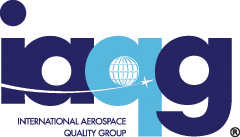In the dynamic landscape of the aerospace, space, and defense industry, ensuring product quality and reliability is paramount. The forthcoming 9145 standard introduces a groundbreaking framework that is set to reshape the industry’s approach to quality planning. Centered around Advanced Product Quality Planning (APQP) and Production Part Approval Process (PPAP), 9145 is poised to transform how aerospace products are developed, validated, and brought to market.
Origins of APQP: From Auto Industry to Aerospace Excellence
The genesis of APQP can be traced back to the 1980s, when the U.S. auto industry faced intense competition from Japanese manufacturers. Recognizing the need for robust quality control, the Big Three automakers—Ford, General Motors, and Chrysler—collaborated to devise a set of standardized tools, guidelines, and principles. This collaborative effort aimed to empower suppliers to enhance their competitiveness within the auto market. With a focus on high-quality, durable, consistent, and responsive products, APQP was born.
Elevating Aerospace Quality
APQP’s success in the automotive realm led to its expansion into diverse industries, including medical and government sectors. Now, it’s making inroads into the aerospace, space, and defense industry. The International Aerospace Quality Group® (IAQG) has taken the lead in adapting and standardizing the APQP approach for aerospace through the 9145 standard.
APQP’s Core Tenets and Benefits
At its core, APQP is a structured approach to defining and establishing the necessary steps for ensuring that the end product meets customer requirements. It embraces cross-functional collaboration, early defect identification, and proactive risk management. By engaging leadership, establishing multidisciplinary teams, and rigorously managing projects, APQP cultivates an environment of continuous improvement and proactive quality assurance.
The benefits of APQP are profound:
- Early Defect Identification: APQP’s structured approach allows for the early identification of defects, reducing the likelihood of quality issues surfacing during production or after product delivery.
- Cross-Functional Collaboration: APQP’s cross-functional nature breaks down silos within organizations, fostering open communication and collaboration across departments.
- Reduced Nonconformances: APQP’s proactive risk management approach results in fewer internal nonconformances and customer escapes.
- Enhanced Supplier Performance: APQP’s emphasis on clear communication and collaboration leads to improved supplier quality performance and on-time delivery.
- Customer Satisfaction: With a comprehensive focus on meeting customer requirements, APQP ultimately drives higher customer satisfaction levels.
APQP’s Phased Approach
APQP operates through a phased planning process that systematically addresses risks throughout product development. The process comprises five phases, each with specific activities and associated deliverables. Leadership engagement, multidisciplinary teams, and effective project management are the cornerstones of successful APQP implementation.
The Role of PPAP
While APQP forms the bedrock of quality planning, the Production Part Approval Process (PPAP) represents a critical component within APQP. PPAP ensures that product quality and engineering issues are identified and resolved before products are transferred to suppliers or customers. It creates a baseline for future changes to the product, driving consistency and reliability.
A Glimpse into the Future
The 9145 standard is currently undergoing a revision to enhance its clarity and applicability based on industry feedback. Addressing gaps, errors, and needed clarifications, the revision aims to provide a more comprehensive guide for implementing APQP and PPAP in the aerospace sector.
One notable update pertains to the required deliverables listed in 9145. Feedback prompted a need for clarity in distinguishing mandatory deliverables from optional ones. The revision is also set to streamline change management and release processes, ensuring a more efficient adoption of the standard.
With enhanced quality planning, streamlined processes, and heightened collaboration, the aerospace, space, and defense industries are poised to achieve new heights of excellence. Stay tuned as IA9145 paves the way for a future where aerospace quality knows no bounds.
This is a summary based on the article, “From Reactive to Proactive: How AS9145 can change the way your organization identifies risk” written by Jennifer Gray. To read the full, original article, please visit this link.



